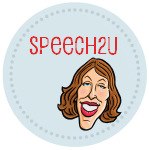-Early Childhood coordinator
"Of course she gets speech therapy in the schools, but we were so excited to get a real therapist to work with our child.
-Parent
"We don't allow fliers in our backpacks-but if we did we still wouldn't use yours because we are able to take care of ALL of our speech and language needs through free and appropriate education."
-school administrator.
-speech language pathologist in the public schools
Turns out-there are a lot of misconceptions about what we are and what we do. According to the US Department of Labor Statistics, there were 123, 200 people working as a Speech language pathologist in 2010. Speech language pathologists work in a variety of settings including: private practice, outpatient clinics, schools, hospitals, and nursing homes. We all get the same schooling and a similar amount of clinical hours. We are all dealing with challenges in our places of employment.
- School Speech language pathologists are struggling with rising caseloads and increased work demands. Speech and language therapist shortages are being filled by temporary and sometimes unqualified workers. In Minnesota, special education providers are lobbying to get 5 year temporary licenses to fill speech pathology positions in the school. There are reports that these licenses are going to people without any training in speech language pathology.
- Speech language pathologists in Nursing homes are being pushed to work longer hours, cut their hours or hit high productivity numbers of 80% or more.
- Medical insurances continue to change coverage for pediatric habilitative therapy. Some are denying coverage for developmental disabilities, articulation, Down syndrome, Cerebral Palsy. More recently more plans have started denying services to children over the age of 6.
- Our scope of practice continues to be challenged by a variety of other professionals.
Join your state professional organization and ASHA. You are busy and probably don't have to time to lobby for all of these issues-they can and will-if they are funded appropriately
- Educate your families about the credentials and schooling needed to become a speech language pathologist. We are both REAL therapists.
- Collaborate with speech language pathologist's within the schools rather than making general recommendations on evaluations or to parents. Sometimes what is possible in an outpatient clinic is not possible in a school based setting. Collaboration will the school speech language pathologist can help you to both figure out how to best service that particular client.
- Ideally, you should contact the schools-their caseloads can be very high.
- Don't be afraid to ask a school SLP to probe a specific skill you are working on in a group or different setting.
- Understand the difference between and expert and a professional opinion. An expert has been practicing and specializing in a specific field for a set number of years. They have probably written books or taught classes.
School Speech language pathologists:
- Ask your families if they receive outpatient services. It is probably not possible to refer or recommend therapy in many districts. Many families don't realize that there are additional options for services until their children are 7 or 8 years old. Using the phrase, "Did you know that some families choose to receive additional services through their medical insurance" is not a referral.
- Understand that many insurance companies require that medically based speech therapy goals are distinctly different from school based goals. Please ask before writing the exact same IEP goals as an outpatient therapist-they may need to change their goals based on your report.
- Educate your administrators about how outpatient and school based therapies can complement each other. Most children progress faster when they are able to get both.
- There are a variety of different insurance plans out there. Some are pretty bad-but other's have good coverage for speech and language services. Many private clinics will verify insurance benefits for parents. Therapy clinics charge different rates-often times hospital affiliated clinics charge 2-3 times more than private clinics. It pays to call around.
- Working privately is a great way to earn extra money and help students in your area. Please charge appropriately for your services. Call clinics in your area and ask what they charge for a speech therapy session. Charging significantly less than the average in an area hurts our profession. Doctor's don't see patients for half of their clinic rate on the side, neither should we.
Just so we are clear, the attitudes expressed above aren't the views of ALL speech language pathologist's (or even MOST speech language pathologists but wouldn't it be great if it wasn't the attitude of ANY?








1 comment:
Why would you refer to school therapists and speech pathologists in nursing homes in an essay promoting that we are all the same. As a SLP in the school I am used to parents deciding to take their child to a "real" Speech Pathologist. I am offended when another SLP makes a similar comment.
Post a Comment